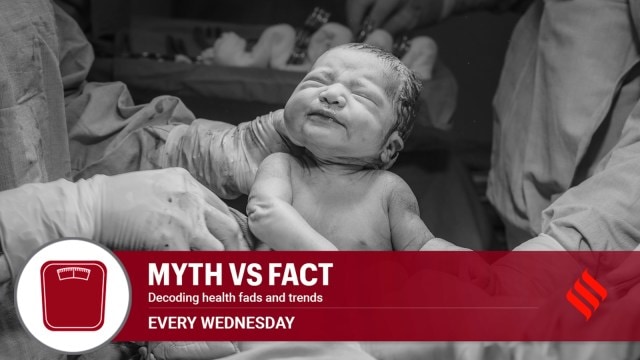Do IVF babies have more health problems? Gynaecologist clears the air
Most couples feel their babies could be vulnerable since they are a result of reproductive technologies
 Studies show that the vast majority of IVF-conceived children develop normally and achieve milestones as well as naturally conceived children. (Source: Pexels)
Studies show that the vast majority of IVF-conceived children develop normally and achieve milestones as well as naturally conceived children. (Source: Pexels)Written by Dr Mannan Gupta
Many couples who come to me for in-vitro fertilisation (IVF), which entails fertilisation of an egg by a sperm in a laboratory and subsequent implantation of the embryo into the woman’s uterus, ask me one question: Will the baby born to them be healthy or be more susceptible to infection?
As an assisted reproductive technology (ART), most people assume that IVF children are somehow unnatural and hence vulnerable to illnesses. This presumption, however, is misplaced.
What is the evidence?
Studies show that the vast majority of IVF-conceived children develop normally and achieve milestones as well as naturally conceived children. They go to regular schools, live ordinary lives and enjoy similar long-term health outcomes. Some findings do indicate that IVF babies tend to have a slightly increased risk of low birth weight, premature birth or being small for gestational age. But such a risk is most frequently associated with circumstances such as multiple conception like twins or triplets, older age of the mother or underlying infertility but not IVF. Also premature or low birth weight babies do not develop significant illness later in life.
What determines the health of IVF babies?
That largely depends on factors such as the health of the parents, the quality of the embryo and the expertise of the fertility clinic providing the treatment.
Notably, as IVF technology improves, through single embryo transfer, freezing technology, and improved embryo testing, risks have diminished considerably.
What can be done to ensure safe birth of babies?
Opt for single embryo transfer instead of multiple embryos to reduce the risk of multiple pregnancies, which are associated with higher health risks for both babies and mothers.
Preimplantation Genetic Testing (PGT) can be performed on embryos before they are implanted. This can help identify and select embryos without chromosomal abnormalities, reducing the risk of birth defects.
Ensure the health of the mother before and during pregnancy is optimum. This includes a lifestyle discipline, managing pre-existing health conditions and addressing any potential risks that may affect pregnancy. Couples need to be counselled so that they can make informed decisions based on their specific circumstances. Regular monitoring and follow-ups during pregnancy can help both the mother and the developing foetus last out the full term.
Science has revolutionized IVF to the extent that it is not only effective but also safe for mothers and babies alike. Couples considering IVF ought to see fertility specialists, adhere to set guidelines and not be discouraged by myths.
(The author is Chairman & HOD, Obstetrics & Gynaecology, Elantis Healthcare, New Delhi)




- 01
- 02
- 03
- 04
- 05


























